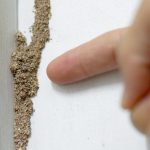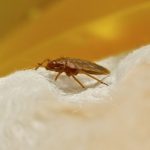5 Home Remedies To Get Rid Of Fire Ants
Fire ants can be an incredibly harmful nuisance to have around your home and garden. If you’ve got pets or small children, you might not be comfortable with your average over-the-counter insecticide. Here are five ways to eliminate fire ants this season, without using dangerous chemicals.
- Cayenne Pepper
Make your own ant-eliminating solution with boiling water, four sliced cayenne peppers and powdered cayenne pepper.
First, bring about a quart of water to a boil. Then, put two to four sliced cayenne peppers in a large glass jar and pour the boiling water over them. Let this mixture sit for 24 hours so it can steep, then, remove the hot peppers and get ready to eliminate those ants.
Ants hate walking over powdery substances, so, first sprinkle powdered cayenne pepper around the colony to prevent them from escaping. Then, pour the cayenne water into the ant hill. In addition to killing the ants in the colony, it will also make the ant hill unlivable.
You can also put your mixture into a spray bottle to spray any ants you find around the home.
- Lemon Water
Mix some lemon juice with an equal amount of water and spray the mixture on any high-traffic ant areas like trail or entry points. You’ll have to be diligent and spray the area consistently for this method to have any effect.
- Vinegar Solution
Mix equal parts vinegar, baking soda and water and pour the mixture into the ant colony or spray it in high-ant-traffic areas. The strong scent of vinegar will repel the ants, but you may have to smell the vinegar for a short period of time.
This mixture will not kill the ants, but it will get them out of your home, and out of their nests so that you can destroy it.
- Dish Soap
Dish soap or detergent is harmful to ants because the chemicals in them can break down the layers of the ants exoskeleton. This causes the ants to dehydrate. Mix dish soap or detergent with water in a spray bottle and apply the solution at any common ant entry points.
- Diatomaceous Earth
Diatomaceous Earth contains the fossilized remains of marine phytoplankton. Basically, this powder scrapes against the exoskeleton of the ants and causes them to dehydrate and eventually die due to loss of inner body fluid.




